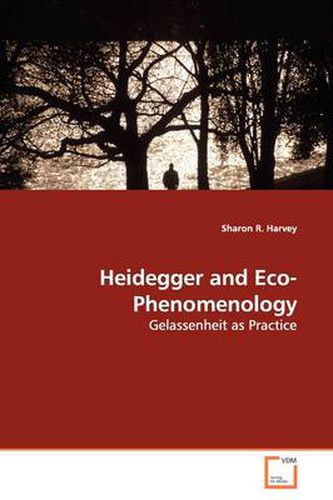Readings Newsletter
Become a Readings Member to make your shopping experience even easier.
Sign in or sign up for free!
You’re not far away from qualifying for FREE standard shipping within Australia
You’ve qualified for FREE standard shipping within Australia
The cart is loading…






This title is printed to order. This book may have been self-published. If so, we cannot guarantee the quality of the content. In the main most books will have gone through the editing process however some may not. We therefore suggest that you be aware of this before ordering this book. If in doubt check either the author or publisher’s details as we are unable to accept any returns unless they are faulty. Please contact us if you have any questions.
An assessment of Martin Heidegger’s notion of releasement (Gelassenheit) is essential due to former misconceptions concerning its applicability for environmental ethics. Recent material on Heidegger is bringing new interest in the practical applicability of Gelassenheit for eco- phenomenology. This book examines the claims of secondary literature, both positive and negative, and compares that with Heidegger’s Gelassenheit (1959), translated as Discourse on Thinking. Gelassenheit, when viewed as a process rather than static, holds resources for environmental responsibility. Heidegger’s Gelassenheit gives us another understanding of our relation to nature, a self-emerging relation that is non-objectified. Gelassenheit offers the field of eco-phenomenology an ethic that goes beyond the subject-object dualism, a non instrumental ethic that holds potential for how to treat nature in the technological world in which we live. This book is addressed to Heidegger scholars, environmental ethicists, eco-phenomenologists, environmental scientists, environmental studies scholars, and continental philosophers.
$9.00 standard shipping within Australia
FREE standard shipping within Australia for orders over $100.00
Express & International shipping calculated at checkout
This title is printed to order. This book may have been self-published. If so, we cannot guarantee the quality of the content. In the main most books will have gone through the editing process however some may not. We therefore suggest that you be aware of this before ordering this book. If in doubt check either the author or publisher’s details as we are unable to accept any returns unless they are faulty. Please contact us if you have any questions.
An assessment of Martin Heidegger’s notion of releasement (Gelassenheit) is essential due to former misconceptions concerning its applicability for environmental ethics. Recent material on Heidegger is bringing new interest in the practical applicability of Gelassenheit for eco- phenomenology. This book examines the claims of secondary literature, both positive and negative, and compares that with Heidegger’s Gelassenheit (1959), translated as Discourse on Thinking. Gelassenheit, when viewed as a process rather than static, holds resources for environmental responsibility. Heidegger’s Gelassenheit gives us another understanding of our relation to nature, a self-emerging relation that is non-objectified. Gelassenheit offers the field of eco-phenomenology an ethic that goes beyond the subject-object dualism, a non instrumental ethic that holds potential for how to treat nature in the technological world in which we live. This book is addressed to Heidegger scholars, environmental ethicists, eco-phenomenologists, environmental scientists, environmental studies scholars, and continental philosophers.